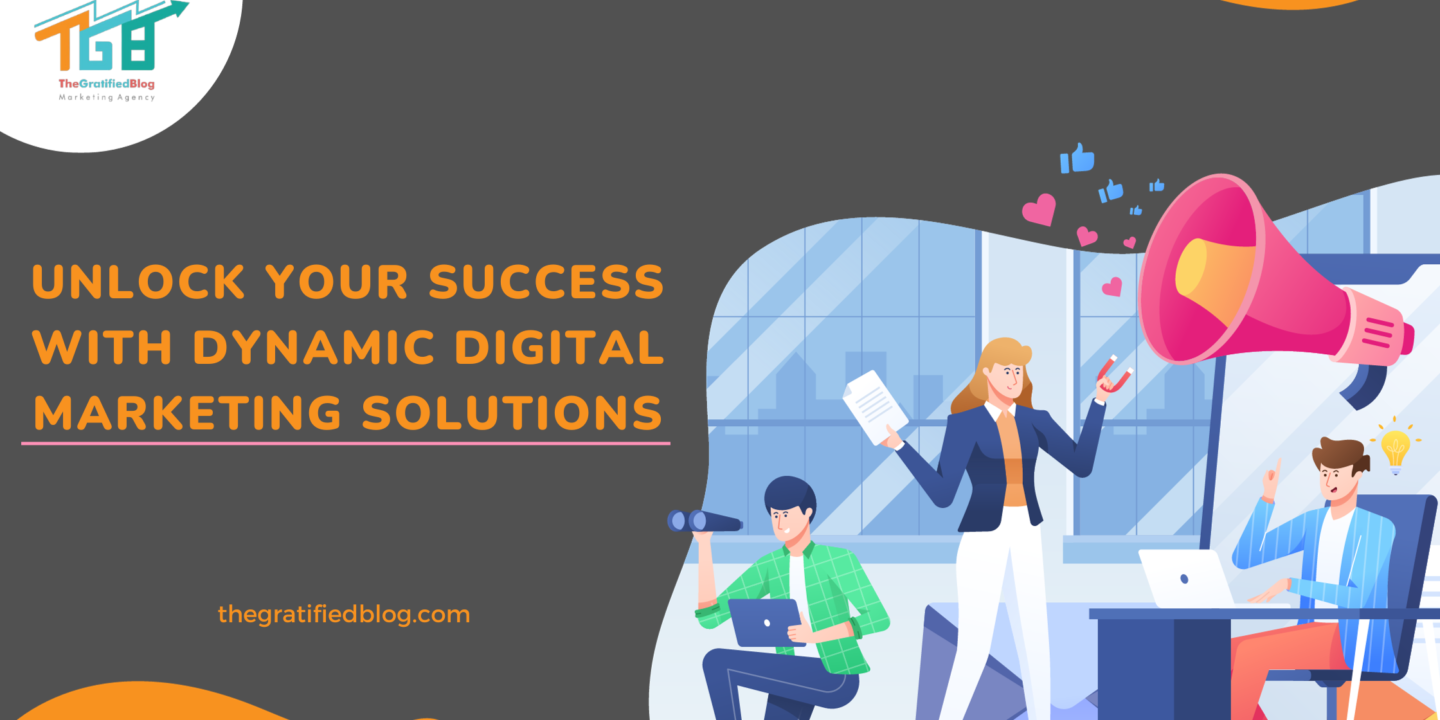
In today’s fast-paced digital age, marketing has undergone a remarkable transformation. The strategies and tools that once ruled the advertising landscape have given way to innovative digital marketing solutions that can elevate your business.
In this comprehensive guide, we delve deep into the world of digital marketing solutions to help you navigate the ever-evolving terrain effectively.
So, let’s get started;
The Importance Of Effective Digital Marketing
In today’s digital-centric world, the significance of effective digital marketing lies in its capacity to connect with and captivate a wide-ranging online audience. Businesses that harness digital marketing proficiently can:
- Expand Reach: Digital marketing allows you to connect with a global audience, transcending geographical boundaries.
- Build Brand Awareness: Consistent online presence and engaging content help establish brand identity and recognition.
- Targeted Marketing: Precise audience targeting ensures your message reaches the right people, increasing conversion rates.
- Cost-Effective: Unlike traditional marketing, digital strategies often offer better ROI, making it a cost-efficient option for businesses of all sizes.
- Data-Driven Insights: Digital marketing provides valuable data and analytics, enabling businesses to refine strategies and optimize campaigns for better results.
- Competitive Edge: Staying updated with digital trends helps businesses stay competitive.
Having understood the significance of digital marketing, let’s now explore various categories of digital marketing solutions.
Types Of Digital Marketing Solutions
here’s a brief explanation of each of the four types of digital marketing solutions:
Paid Advertising

Paid advertising involves investing in online ads to promote your products or services. This method includes various formats such as Pay-per-click (PPC) advertisements, display advertising, and social media promotion. It provides accurate targeting choices, enabling you to connect with your ideal audience based on demographics, interests, and online behavior.
Paid advertising provides quick results; you pay only when someone interacts with your ad, making it cost-effective. However, managing budgets and campaigns effectively is essential to attaining a favorable return on investment (ROI).
Content Marketing
Content marketing encompasses creating and disseminating valuable and pertinent content and maintaining regular content to attract and involve your intended audience. Content can manifest in various formats, such as blog posts, videos, infographics, and ebooks. The goal is to provide information that addresses the needs and interests of your audience, positioning your brand as an authority in your industry.
Content marketing builds trust, fosters long-term relationships, and has the potential to generate organic traffic to your website.
Social Media Marketing

Social media marketing utilizes platforms like Facebook, Instagram, Twitter, and LinkedIn to connect with your audience, build brand awareness, and drive engagement. It encompasses the creation and dissemination of content, execution of paid advertising campaigns, and engagement with followers.
Social media marketing offers real-time communication and feedback, making it an excellent customer support and community-building channel. The choice of platforms depends on your target demographic, and a well-executed social media strategy can help humanize your brand and boost customer loyalty.
SEO Strategies
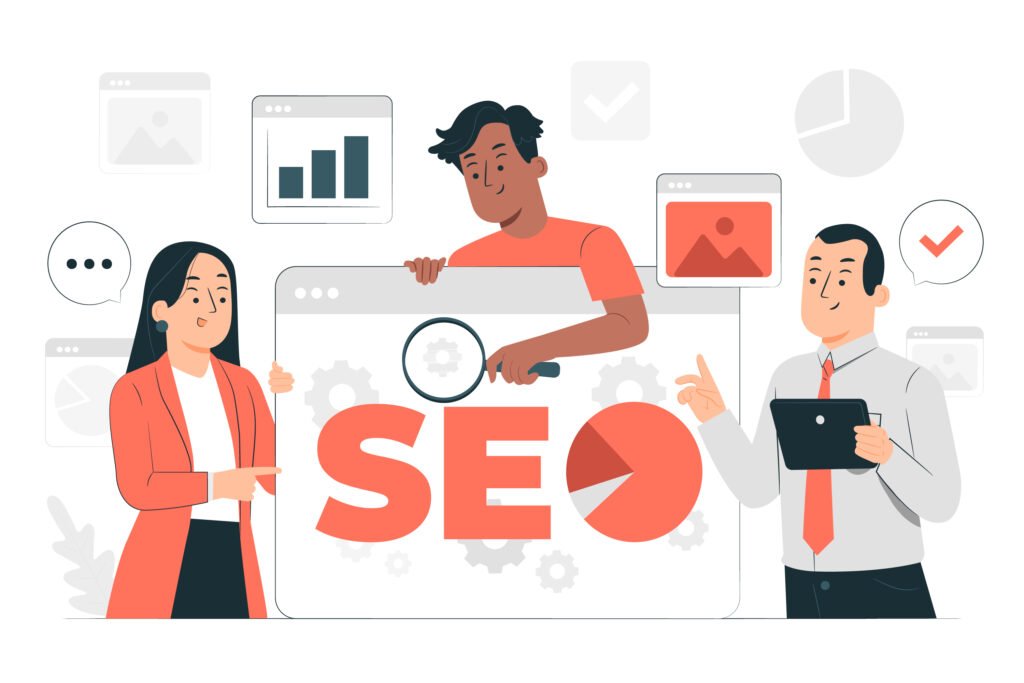
Search Engine Optimization (SEO) focuses on optimizing and Enhancing the position of your website in search engine results pages (SERPs). This involves on-page and off-page tactics, such as keyword research, content optimization, link building, and technical SEO enhancements.
SEO aids in boosting the organic traffic to your website, improving its visibility, and establishing credibility with search engines like Google. A strong SEO strategy can result in sustainable, long-term traffic growth, reducing the reliance on paid advertising for website visitors.
These digital marketing solutions play a unique role in a comprehensive digital marketing strategy, and the right mix depends on your business goals and target audience.
Now, let’s discuss the steps for making the right choices regarding digital marketing solutions.
Selecting the Appropriate Digital Marketing Solutions?
Choosing the right digital marketing solutions is vital for your endeavors in online marketing. It requires a strategic approach following your business goals with the most suitable digital marketing strategies and tools.
Here’s a breakdown of how to make the right choices:
- Assessing Your Business Needs:
- Identifying Your Target Audience: Understand your audience’s demographics, interests, and online behavior. Knowing your ideal customer helps tailor your digital marketing strategies to their preferences.
- Setting Clear Objectives: Crafting SMART goals for your digital marketing endeavors, ensuring they are specific, measurable, achievable, relevant, and time-bound initiatives. These objectives will guide your strategy and provide a benchmark for success.
- Evaluating Available Tools and Platforms:
- Paid vs. Organic Strategies: Determine whether paid advertising or organic strategies (like content marketing and SEO) suit your goals and budget. Paid strategies offer quick results but require ongoing investment, while organic strategies can provide long-term benefits.
- Platform Selection and Budgeting: Choose the digital marketing platforms and channels that align with your intended audience and goals. Allocate your budget strategically to maximize your ROI on each platform.
You can decide which digital marketing solutions fit your unique circumstances by assessing your business needs and evaluating available tools and platforms. Now, let’s delve into putting these digital marketing solutions into action.
Implementing Digital Marketing Solutions
Once you’ve chosen the right digital marketing solutions for your business, it’s time to implement your plan. Successful implementation involves a combination of creative efforts and data-driven analysis.
Here are the two critical components:
Crafting Engaging Content:
Producing high-quality, relevant, and engaging content is the cornerstone of many digital marketing strategies. Whether blog posts, social media updates, videos, infographics, or other mediums, your content should connect with your intended audience and provide value. Some key considerations include:
- Understanding Your Audience: Tailor your content to the preferences and needs of your audience. Conduct comprehensive research to pinpoint their challenges, preferences, and questions.
- Consistency: Uphold a regular posting timetable to captivate your audience and establish anticipation.
- Quality Over Quantity: Focus on producing content that adds value and engages your audience rather than churning out content in high volumes.
- Diversification: Experiment with various content formats to see what resonates best with your audience.
Measuring and Analyzing Performance:
To guarantee the efficacy of your digital marketing initiatives, you must regularly measure and analyze performance. Key aspects of this process include:
- Setting Key Performance Indicators (KPIs): Establish clear KPIs that align with your marketing objectives. These could include website traffic, conversion, click-through rates (CTR), social media engagement, and more.
- Tracking Tools: Employ analytics tools such as Google Analytics, social media insights, and email marketing analytics to monitor the performance of your campaigns.
- A/B Testing: Experiment with different strategies, content formats, and ad variations to identify what works best. A/B testing assists in refining your approach and maximizing results.
- Continuous Optimization: Use the insights gained from data analysis to make informed decisions. Adapt your strategies according to what proves effective and what needs improvement.
Conclusion
With a solid grasp of digital marketing solutions, there’s no need to delay – go ahead and experiment with them to discover which ones yield the most favorable results for your business.
If you still have any questions related to the topic, please leave them in the comments section. We will be happy to answer your questions.
Thanks for reading 🙂




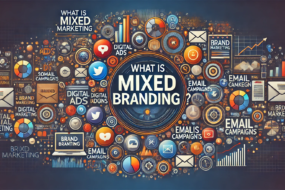
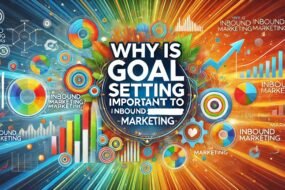
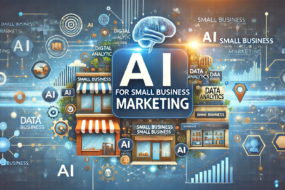

No Comments